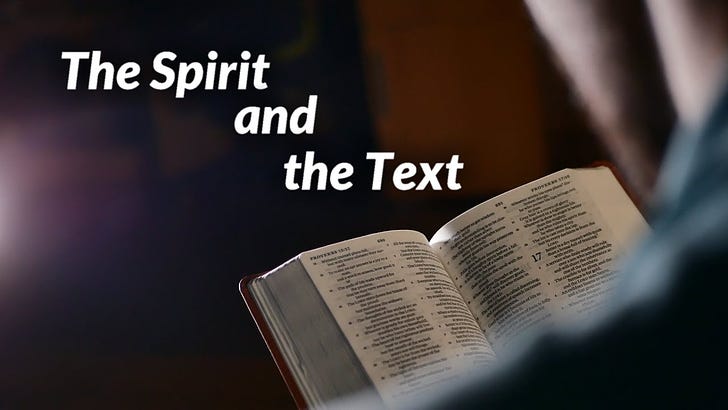Steven HAuse just released a documentary on YouTube, for which, along with a few others (see the list below), my two brothers (Robert Warren Hart and David Bentley Hart) and I were interviewed. My contribution, which more or less concludes the documentary, begins around the 1:17 mark. The subject discussed is the vexed one of “biblical inerrancy.”
This is the brief introduction accompanying the video on the site:
In this documentary, some of the problems with the idea of biblical inerrancy are looked at from a variety of perspectives.
Interviews with: Jeff HAuse, Robert Warren Hart, Brian Zahnd, Wm. Paul Young, Michael Camp, Heather Hamilton, Keith Giles, Amos Yong, Andrew Hronich, Zack Hunt, Derek Vreeland, Brad Jersak, Steve McVey, Jordan Daniel Wood, Kenneth Tanner, David Bentley Hart, Jesse Hake, Chris E.W. Green, Addison Hodges Hart




Thank you for this, very helpful. I’ve thought of the bible for some time as a kind of biography - spiritual, emotional, psychological - from my / our birth in Genesis, coming to consciousness in the Garden of early infancy, inevitably having to leave it to start our journey, progressing through all the developmental stages described by Piaget, Gebser and others, reflecting all our vices and virtues, our darknesses and shadows until we reach the apotheosis of Jesus’ coming, teaching, death and resurrection - the resolution of all the preceding confusions, missteps in the transcendent acceptance of ourselves, of suffering, and the perfect love of the son, spirit and the father. The letting go of the ego on the cross, and the liberation from the death of the little self. And to top it off, apocalypse/revelation which I think of as the Christian version of the Tibetan Book of the Dead - the soul’s final journey back to the City of God. So the bible is a reflection of ourselves and like a reflection in water, it never comes back at us the same way twice. It’s a conversation and a journey, of discovery. Not a message from a divine dictator.
Great video, I have always had an issue with inerrancy. However, coming initially from a Roman Catholic background, I detect a similar issue with the role of Tradition, which has unfortunately been a stumbling block keeping me from going back to that tradition or the orthodox. Regarding the later, somehow my baptism which was performed by my uncle, a Roman Catholic priest, being illegitimate rubs the wrong way, and both come off as God having a favorite Church. But that is my hangup.